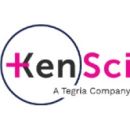
As the birthplace of Amazon, Microsoft and Boeing, it makes sense that Seattle has one of the most highly regarded universities in the world. The University of Washington’s prestige actually predates the modern tech boom, having been a world leader in scientific research since clouds were a mere meteorological phenomenon and nothing more. In fact, Reuters recently ranked U-Dub as the fifth most innovative university in the world — and if you’re only counting public universities, it takes the top spot.
While the university specializes in medicine, science and beating those dastardly Ducks, UW is also a world leader in digital technology. The Paul G. Allen Center for Computer Science & Engineering will soon be supplemented with a second facility named after — you guessed it — Bill and Melinda Gates. The Arthur W. Buerk Center for Entrepreneurship and CoMotion Labs, the university’s startup incubator, also help to support high tech Huskies.
It would be impossible to list all of UW’s spinouts and startups here — there have been over 80 in the last five years alone — so we focused on tech industry businesses that remain active, independent and local. Honorable mentions go to the likes of Turi, a machine learning startup acquired by Apple in 2016; Decide, an e-commerce site acquired by eBay in 2013; and Senosis Health, a mobile-based health monitoring company acquired by Google last year.

Founded: 2000
Industry: Wireless connectivity for just about anything
The lowdown: Impinj’s technology allows businesses to track items they build, manage, transport and sell. Their integrated RAIN RFID platform covers software, connectivity and the IoT endpoints across an entire system, offering the ability to track everything from golf balls to travelers’ luggage. The company was valued at $320 million when it went public in 2016, and co-founder and CEO Chris Diorio is now an affiliate professor of computer science and engineering at the University of Washington.

Founded: 2012
Industry: Edtech
The lowdown: Enlearn is an educational non-profit working on a collaborative platform that allows school districts, publishers and teachers to provide personalized learning experiences for underserved students. The software can adapt according to the evolving preferences of a particular classroom, teacher or individual student. Enlearn has raised $14.4 million to date, and founder and chief scientist Zoran Popović also works as a professor of computer science and director of the Center for Game Science at the University of Washington.

Founded: 2013
Industry: Sports
The lowdown: Capslock-lovin’ VICIS seeks to eliminate sporting concussions with a reimagined football helmet. The ZERO1 design features a soft outer shell supported with columns that are designed to slow impact forces in much the same way as a bumper increases a car’s stopping distance during a collision. VICIS recently revealed a youth version of the ZERO1, along with $28.5 million in Series B funding. In addition to its football helmets — which the Seahawks and other NFL teams are already using — the company recently started work on a contract to improve the design of combat helmets in the U.S. military.

Founded: 2003
Industry: Biotech
The lowdown: NanoString Technologies provides a range of biotechnology products based on an original method for barcoding the genetic sequence. In the past, the company has conducted tests to determine which variety of cancer treatment would work best for a patient based on their DNA. The company has raised over $200 million in funding since its founding, and went public in 2013.
Founded: 2015
Industry: Device connectivity
The lowdown: Jeeva Wireless was founded by a team of UW students to lower the energy cost and broaden the capabilities of communication between computers. Today, computers generally use some form of Wi-Fi connection to communicate. Jeeva’s technology uses lower-frequency radio waves, allowing the waves to more easily pass through obstacles. According to the company, the technology also uses 10,000 times less power than other communication solutions. The list of potential uses of such technology is enormous, from smart cities monitoring pollution levels on street corners to smart farms using sensors to report soil condition and crop growth. The company has raised $4.2 million to date, across four funding rounds.

Founded: 2015
Industry: Wireless charging
The lowdown: As businesses and governments deploy swarms of autonomous drones to do our dirty work, the ability to efficiently recharge their batteries will be key to productivity and efficiency. To this end, Wibotic has pioneered wireless charging solutions for drones operating in the street, in the air, underwater and inside industrial facilities. The company was co-founded by Ben Waters and Professor Joshua Smith at the University of Washington in 2015, and raised a $2.5 million seed round last year.

Founded: 2017
Industry: Medical research
The lowdown: A-Alpha Bio’s technology is a response to the emergence of synthetic protein-building software pioneered by Seattle’s Cyrus Biotechnology, among others. Just because you can create a protein doesn’t mean it will work — and so A-Alpha Bio watches masses of proteins interact with genetically engineered yeast cells, then uses next-generation software to quantify the results. The startup recently received a $225,000 grant from the National Science Foundation.

Founded: 2016
Industry: Artificial intelligence
The lowdown: Xnor AI was founded by Mohammad Rastegari and Ali Farhadi, an associate professor at UW’s Department of Computer Science and Engineering. The company retrains AI models into a proprietary binary neural network, which makes them faster, more efficient and less memory-taxing than traditional deep learning models. This means AI models can run on smartphones, and other “edge” devices. Xnor AI has raised $14.6 million in two rounds since 2017.

Founded: 2015
Industry: Healthtech
The lowdown: KenSci’s machine learning platform helps health professionals predict adverse outcomes for their patients. Started by a team of researchers at UW's Tacoma campus, whose work produced more than 25 peer-reviewed papers, the company has since raised $8.5 million in two rounds. The company’s technology currently serves 25 different health systems, which use it to ingest, transform and integrate disparate data from EHRs, claims, finance departments and others. KenSci’s AI then scans the data for patterns, finding granular details in an individual patient’s history and predicting risks they may face in the future.











